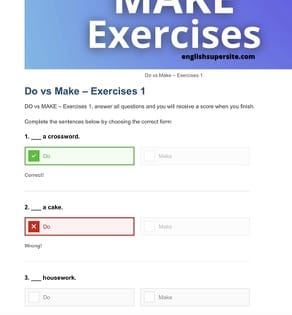
12 Best Skills to Develop for Fast Career Growth
In today’s fast-paced work environment, career growth requires strategic skill-building, learning, and continuous improvement. You need to focus on acquiring the right set of skills that align with market demands and that will help you stand out among your peers. Career growth also involves understanding trends, anticipating skills needed, and improving both technical and soft skills. Below, we explore ’12 Best Skills to Develop for Fast Career Growth’ — twelve of the best skills that you should develop to accelerate your career advancement, listed in order of importance. These skills will not only enhance your professional effectiveness but also help you position yourself as a valuable asset within any organization, increasing your chances of rapid promotions and career success.
1. Communication Skills
Communication is a foundational skill that impacts almost every aspect of professional life. Whether it’s delivering presentations, participating in team meetings, or interacting with clients, strong communication skills can greatly enhance your professional effectiveness. Clear articulation of ideas helps build relationships. Active listening can influence decision-making within your organization.
Tip: Practice public speaking, improve your writing skills, and actively engage in conversations that matter to your field to sharpen this ability.
2. Adaptability
The business landscape is always evolving, and companies are seeking individuals who can quickly adapt to new challenges. Adaptability allows you to embrace change, learn new processes or technologies, and remain productive under pressure. It is a highly sought-after skill in industries that are undergoing rapid transformations.
Tip: Step out of your comfort zone by taking on new responsibilities or working in different environments. Be open to learning continuously and embracing new technologies.
3. Leadership
Even if you’re not in a managerial role, developing leadership qualities can accelerate your career. Leadership is about guiding and inspiring others, as well as taking responsibility and making decisions that help the team move forward. Employers value employees who demonstrate initiative, empathy, and the ability to motivate others.
Tip: Start by taking charge of small projects, mentor junior colleagues, and be proactive in problem-solving to cultivate leadership skills.
4. Emotional Intelligence
Emotional intelligence (EQ) is the ability to understand and manage your emotions, as well as recognize and influence the emotions of others. EQ is crucial for effective teamwork, conflict resolution, and leadership. Having a high EQ can make you a more empathetic colleague and a better leader, enhancing your interpersonal relationships at work.
Tip: Practice active listening, reflect on your emotional responses, and focus on empathy during interactions to improve your EQ.
5. Data Literacy
Data literacy involves understanding and interpreting data to make informed decisions. As businesses increasingly rely on data to guide their strategies, the ability to analyze data is becoming an essential skill across various roles. This includes understanding basic statistics, working with data visualization tools, and drawing insights from data.
Tip: Take courses on data analytics tools like Excel, Power BI, or Tableau, and practice interpreting real-world data sets.
6. Artificial Intelligence (AI) Awareness
AI is transforming industries, and understanding it can give you an edge in your career. AI awareness involves understanding the basics of machine learning, automation, and how AI tools can be leveraged in your industry to enhance productivity and decision-making.
Tip: Take introductory courses on AI and machine learning, and explore how AI is being used in your field. Familiarity with AI tools like chatbots, predictive analytics, and automation platforms can be valuable.
7. Time Management
Efficient time management is crucial for meeting deadlines, handling multiple projects, and maintaining productivity. Effective time management skills help you prioritize tasks, allocate resources wisely, and reduce stress, which ultimately leads to better performance and a faster path to promotions.
Tip: Use tools like planners, task management apps, and the Pomodoro technique to stay on top of your tasks and avoid burnout.
8. Critical Thinking and Problem-Solving
Employers value individuals who can approach challenges logically and come up with effective solutions. Critical thinking helps you analyze information, identify patterns, and make sound decisions. Problem-solving skills, on the other hand, allow you to navigate obstacles efficiently, often leading to innovative solutions that benefit your organization.
Tip: Engage in exercises that challenge your logical thinking, such as puzzles or strategy games, and seek feedback on your decision-making processes.
9. Personal Branding and Networking
Building and maintaining professional relationships is key to career growth. Personal branding and networking can help you establish a professional identity, learn from peers, discover new opportunities, and get mentorship that accelerates your career trajectory. It also helps in gaining insights into industry trends and positioning yourself as an active participant in your field.
Tip: Attend industry conferences, join online forums, and connect with professionals on platforms like LinkedIn to expand your network.
10. Tech Fluency
Tech fluency is no longer optional. It involves not only basic digital literacy but also understanding emerging technologies such as cloud computing, cybersecurity, and the latest digital tools. Developing a strong grasp of technology helps you stay competitive and contribute effectively in a tech-driven workspace.
Tip: Take online courses in areas like digital marketing, social media management, or office productivity tools to enhance your digital skills.
11. Project Management
Project management skills are essential for organizing work, managing resources, and delivering projects on time. Knowing how to plan, execute, and close projects efficiently can boost your career, especially if you aim for leadership roles. Familiarity with methodologies such as Agile or Scrum can be an added advantage.
Tip: Practice project management by using tools like Trello, Asana, or Microsoft Project. You could also consider getting certifications such as PMP or Certified Scrum Master.
12. Negotiation Skills
Negotiation is a crucial skill for career growth, whether you are seeking a higher salary, discussing project terms, or resolving conflicts. Being a good negotiator allows you to advocate effectively for your interests while finding a solution that satisfies all parties involved. This skill is especially valuable in leadership, sales, and client-facing roles.
Tip: Practice negotiation techniques through role-playing exercises, learn about negotiation frameworks, and seek opportunities to negotiate in low-stakes situations to build confidence.
Discussion Questions
- Which of these skills do you think would be most important for your specific career path, and why?
- Can you think of any real-life situations where adaptability has helped you or someone you know advance in their career?
- How might emotional intelligence contribute to resolving conflicts in the workplace?
Vocabulary
- Adaptability: The ability to change to suit different conditions or environments. Example: Adaptability is crucial when moving to a new job role or department.
- Empathy: The ability to understand and share the feelings of others. Example: Empathy helps in building trust within a team.
- Data Literacy: The ability to read, understand, and work with data. Example: Data literacy is becoming increasingly important across industries.
- Artificial Intelligence (AI): The simulation of human intelligence in machines that are programmed to think and learn. Example: Artificial Intelligence is used to automate repetitive tasks in many industries.
- Critical Thinking: The objective analysis and evaluation of an issue to form a judgment. Example: Critical thinking is needed to solve complex business problems.
- Digital Literacy: The ability to use information and communication technologies effectively. Example: Digital literacy is important for working in today’s tech-driven environments.
Study Also:
Abbreviations Cohesion and Coherence Collocations Comparative Conditionals Frequent Errors Future Continuous Future Perfect Future Perfect Continuous Future Simple Homonyms Interjections Journaling Learn English Linking Words Logical Flow Past Continuous Past Perfect Past Perfect Continuous Past Simple Plural Present Continuous Present Perfect Present Perfect Continuous Present Simple Pronunciation Question Tags Quiz Quotes Simple Future Simple Past Simple Present Spelling Superlative Transition Words
Share with your friends!













